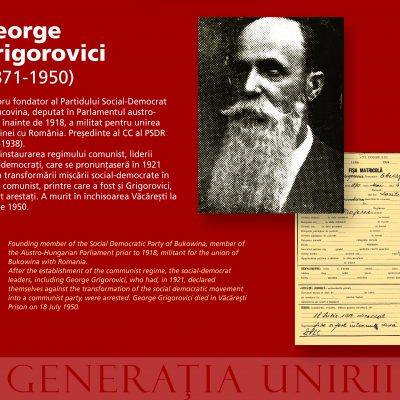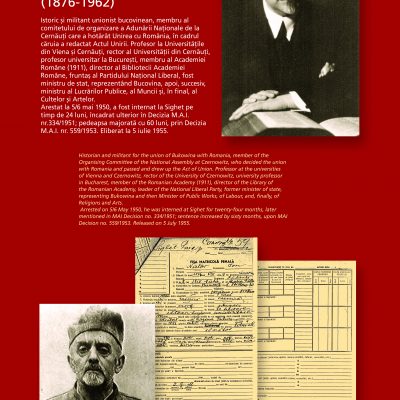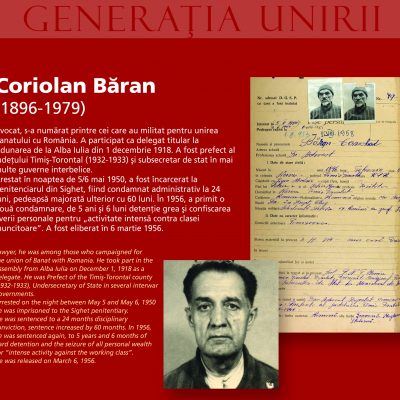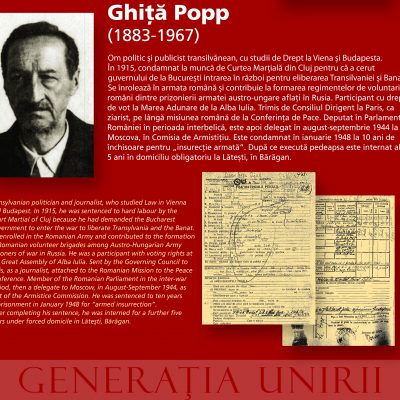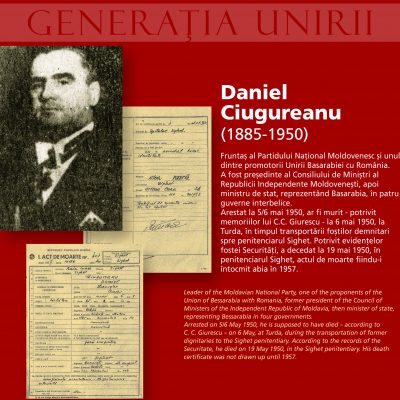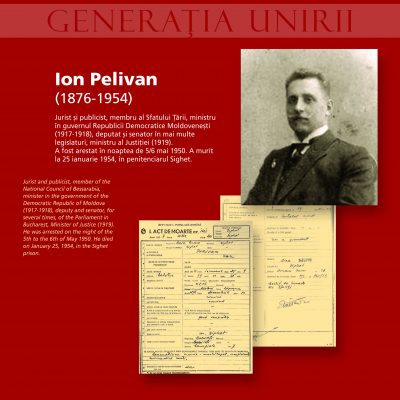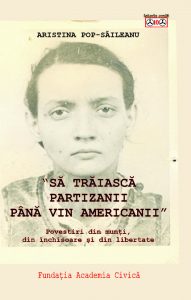 In a house in the centre of Bucharest, hidden away at the bottom of a vegetable garden and orchard, there lives a lady with a sensational biography. The history that shaped her also prevented her from telling her story until recently.
In a house in the centre of Bucharest, hidden away at the bottom of a vegetable garden and orchard, there lives a lady with a sensational biography. The history that shaped her also prevented her from telling her story until recently.
Her father, a famous forester from Lăpuş Land (a region of north-western Romania), saved a number of Jewish children from being deported to Auschwitz during the Hungarian occupation of 1940-45, and is listed by the Yad Vashem Memorial in Jerusalem of one of the Righteous among Nations. But after the war, in 1948, because he had hidden anticommunist fugitives in his canton, he himself was forced to flee into the Ţibleş Mountains, threatened with arrest after rejecting the Securitate’s proposal that he become an informer. He took with him two of his children. The daughter was sixteen and had the mythological-sounding name Aristina. The son, Achim, was four years older. After their departure, the other members of the family – wife, other children, and numerous other closer or more distant relatives – were deported to the steppes of southern Romania. In 1953, having led the Ţibleş resistance group* for four years, the seriously ill Nicolae Pop asked to be carried down from the mountains, so that he would not be a hindrance to his comrades in arms and in order to ransom his persecuted relatives. The Securitate men found him but did not wait for his illness to finish him off: they executed him without trial. Shortly thereafter those in the mountains were either shot or caught and convicted: Achim received twenty-two years and Aristina Pop twenty years imprisonment. Aristina spent eleven years in prison until the general amnesty of 1964, herself seriously ill, but protected by the friendship of her fellows in suffering, among whom she was always the youngest.
Aristina Pop has experienced the most terrible suffering, but she has always found a hand to protect her. She is a person able to make herself loved precisely because she is incapable of hate. She disarms her interrogators with her ingenuousness, her female guards with the fact that she is young enough to be their daughter, her doctors with the selflessness of her youth. Although she lives among sick women and witnesses many of them dying beside her, she never loses her faith, she refuses to be resigned, she continues to hope. The intellectuals, peasant women, nuns and high-society ladies form an ideal world, a phalanstery of ennobling suffering. On her release from prison the Securitate attempts to make of use her, but she asks them rather to send her back behind bars. She marries “on first sight” a young man, Nicolae Săileanu, who had been in the same prison and had fallen in love with her without knowing what she looked like, merely having heard her story. She has the same good fortune with her parents-in-law, into whose house she moves, and at work, where she is hired “without an autobiography” She vanishes into the teeming city of Bucharest, cautiously, but without complexes.
How did such a person manage to make herself loved in a world of hatred and the class struggle? The secret undoubtedly resides in an innate knowledge of how to remain normal in a world of abnormality.
Aside from these psychological data, Aristina Pop is also an exceptional witness and confessor. Her account is simple, clear and luminous. The numerous people alongside whom she lived – in the mountains, in the prisons, and in private life after her release – are sketched by means of a single feature, the description of a gesture or biographical event, always the most flattering. A goodness that does not lead to the cheaply idyllic, but to an existential floating above the world’s misfortunes, a kind of “sanctity” in the state of sacrifice and suffering.
As documents, her confessions put an unexpectedly high figure on the number of those who resisted communism and those who filled the prisons. Across the inherently narrow horizon of the hideout in the mountains or of the prison there file dozens, hundreds of people, behind whom stand thousands and thousands of others, hosts of trustworthy people, who suffer in silence and are willing to help you. Many more then, in times of terror, than today, in times of freedom.
The coincidences and surprises are astonishing. It sometimes happened that a number of members from the same family were held in the same prison without knowing of each other’s presence there. A prisoner sees her sister savagely beaten by the Securitate but does not recognise her because of her disfiguring wounds. An octogenarian father is sentenced to eighty years hard labour because he refuses to denounce his son, who has been parachuted into the country by the Americans. Prisoners are released from and return to the same prison, years later, in a carousel of terror. And finally, on her return home from prison, at first “Auntie Aristina” is recognised not by her elderly relatives, but by a twelve-year-old niece who was born during her absence and knows her only from the stories of others.
Likewise, unbelievable things sometimes happen: in a house in whose attic the partisans are hiding, a Party meeting is held, at the end of which the fugitives hear the now drunk communists singing the refrain we have used as the title of a book: “Long live the partisans, / Here come the Americans.” Opportunism? Cynicism? Vain hope? For a country whose prisons were bursting to the seams with political prisoners, the American dream was a universal panacea, but also an illusion.
These are details which, albeit aleatory, speak of the terrifying dimensions and nuances, in space and time, of the prison-camp system.
Romulus Rusan
English translation Alistair Ian Blyth
Romulus Rusan, Aristina Pop Săileanu, “Long live the partisans, /Here come the Americans” in Lest We Forget. Memory of Totalitarianism in Europe, ed. Gillian Purves, 2013
* The Ţibleş resistance group (Pop – Oniga). Armed resistance group that operated in Lăpuş Land under the command of forester Nicolae Pop from Lăpuşul Românesc. Over the course of its existence, the group had around twenty members, with alternations. The members of the group included Vasile Paşca, Vasile Hotea (student, member of the Popşa group), Achim and Aristina Pop, Ioan Mâţ, Ilieş Dunca, Gavrilă Dunca, Ioan Hotico, Dumitru Hotico, Vasile Chindriş, Ştefan Chindriş, Dumitru Chindriş, Father Atanasie Oniga, and Mircea Dobre. Among the last members to join the group, in 1951, were Ioan Rusu (student, member of the Popşa group), Vasile Tivadar and Vasile Blaga. The group clashed with the forces of the Ministry of Internal Affairs on numerous occasions. By adopting a defensive strategy – they never attacked – they managed to escape. In the winter of 1952, the group’s food store was captured. Securitate troops were spreading out through the mountains and the methods they used to annihilate the group diversified: they recruited an increasing number of informers, they threatened parents, siblings and relatives. These measures led the group to separate into smaller units in 1952, in order to resist more easily. In 1953, the Ţibleş resistance group was completely crushed. One by one its members fell into the hands of the Securitate. Dumitru Hotico was shot in September 1952, Atanasie Oniga in January 1953 and Vasile Hotea in March 1953. The first trial of the group’s members was held in the spring of 1953, and the second in August 1953, at the Military Tribunal in Oradea.


